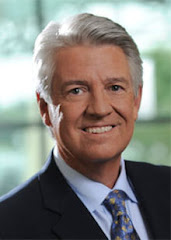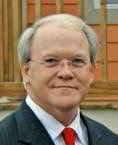From a Birmingham jail cell, Martin Luther King Jr. wrote a letter to the “moderate” religious leaders of his day. He told of how “gravely disappointed” he was in them.
Of course, King had always known better than to expect support from men such as Bull Connor, but for a time, King apparently held some hope that “moderates” would stand with him and other black Americans in their struggle for justice. However, in his letter from the Birmingham jail, King said that he had almost reached the conclusion that the greatest stumbling block was “not the Ku Klux Klanner but the white moderate who is more devoted to ‘order’ than to justice.”
“Shallow understanding from people of good will is more frustrating than absolute misunderstanding from people of ill will,” wrote King.
As we have struggled to bring to light the injustice in how clergy abuse survivors are treated in Baptistland, I have often pondered the words of King’s letter. I too have grown to the conclusion that the “moderates” may be the most frustrating of all.
Any fool will know that people who denounce clergy molestation survivors as “evil-doers” and "opportunists" aren't likely to be people who will extend much help. Of course, that’s “any fool” except countless other Baptist leaders who remain content to keep men of such hateful words in high leadership. Nevertheless, for us mere mortals, the heartless cruelty of men such as this -- and there are many of them -- is at least transparent. So we don’t get our hopes up.
But it has taken me much longer to understand the reality of what King wrote about in his letter -- the reality that, with only rare exceptions, “moderates” are equally unhelpful. They are “more cautious than courageous,” and they remain “silent behind the anesthetizing security” of their status-quo do-nothingness.
In fact, most “moderate” Baptists maintain the same status-quo as the other Baptists.
In his letter, King complained of those “moderate” leaders who constantly said: “I agree with you in the goal you seek, but I cannot agree with your methods….”
I have often heard virtually identical words from “moderate” Baptist leaders.
But as with King, I have seen that, though “moderates” may say they agree, they will not take steps toward actually implementing change because to do so would upset their status-quo power structures.
And the “moderates” put forward the exact same excuse as those other Baptists who call us ugly names. It’s the “because we have no bishops” excuse. It’s the “all Baptist churches are autonomous” excuse.
Then they say that I’m too impatient and that, with time, change will come.
Martin Luther King called this a “mythical concept of time.” It’s a concept that imagines the flow of time alone will somehow change things. But of course, it won’t. Advancing the good requires action. But when it comes to clergy sex abuse, action is exactly what “moderates” reject.
Sometimes I really wonder about some of these “moderate” Baptist leaders. Do you think they actually believe the words they speak?
Do they actually believe that “because there are no bishops,” Baptist leaders are powerless to do anything about clergy who are credibly accused of molesting kids? Or do they simply spout the Baptist party-line to avoid rocking the boat, to protect their own careers, or to preserve the false-peace of the status-quo?
Do they really believe that the New Testament prescribes the parameters of “local church autonomy” so precisely that it allows churches to cooperate for funding ministers’ retirements, for international missions, for keeping historical records, and even for investigating churches with gays in their membership . . . but NOT for responsibly assessing reports about clergy who molest kids?
How do intelligent “moderate” people arrive at actually believing such a thing?
If they can come up with such a contrived “autonomy” definition as that, why do they not go ahead and come up with a definition that will serve for the protection of kids and for ministry to the wounded? It’s obvious they’re defining it how they themselves choose, and so why don’t they choose a definition more functional for the welfare of others?
How do intelligent “moderate” people convince themselves that providing critical information to churches -- information about ministers credibly accused of sexual abuse -- will somehow take away the autonomy of churches to decide what to do with that information?
How do they not see the self-serving hypocrisy in such a radicalized view of “local church autonomy”?
And how can they possibly imagine that this abstraction of “autonomy” -- an abstraction that they themselves have defined for their own ends -- could possibly be more important than protecting real kids against clergy who molest and rape them?
I’ll never understand it.
Weighed against the reality of predatory clergy who church-hop through the porous network of Baptistland, the excuse-making of “moderate” Baptist leaders sounds hollow indeed.
In the words of Martin Luther King, moderate Baptist leaders “stand on the sideline” mouthing “pious irrelevancies and sanctimonious trivialities.”
_______________________________
This column was previously published on Martin Luther King day in 2011.
Monday, January 16, 2012
Subscribe to:
Posts (Atom)

























